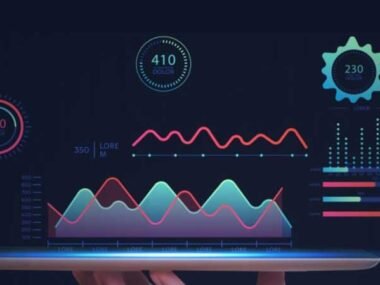In the ever-evolving world of SEO, it’s all about keeping a watch at the proper metrics to see if all the ones strategies and tweaks are paying off. Sure, search engine optimization can feel like a sport of endless changes and first-class-tuning, but tracking a handful of key metrics will give you the clarity you want to measure what’s operating, and what’s no longer. For businesses aiming to boost their online presence, professional SEO services London offer tailored strategies that drive traffic and improve rankings. Let’s go through a number of the maximum-telling SEO metrics that’ll assist you stay on top of your recreation. Here we go:
Keyword Rankings
If your website is creeping up closer to the top of Google for a targeted keyword, you’re at the right spot. But, it’s crucial to keep in mind that scores may be risky. They can differ with algorithm updates, competitors’ interest, or even slight tweaks in your own content.
It’s not pretty much rating high for “golden keywords” anymore; rather, aim to rank for clusters of related terms that capture the breadth of what customers may look for. Tracking these scores often will assist you regulate and recalibrate as needed, providing you with insight into how well your content material and optimization efforts are aligning with consumer intent.
Organic Traffic
To get the most out of this metric, fine tuning the changes in organic visitors throughout the years is crucial. If you spot a regular increase, you’re doing something right. A surprising drop, then again, can signify an issue, like a Google penalty or a main alternative in your area of interest. Organic traffic doesn’t lie, it displays how properly you’re meeting the wishes of your target audience and adapting to search engine algorithms.
Average Click-Through Rate (CTR)
Improving CTR regularly for your meta tags to speak immediately to users’ search intent. Consider what could make you click on a hyperlink in case you have been attempting to find a similar subject matter. After all, you’re competing with other consequences at the web page, so creating a greater engaging headline or meta description could make all of the differences.
Bounce Rate
Bounce rate tells you the share of visitors who land on your web page and leave the site without exploring any further. While now not continually the most liked metric, the price presents insight into consumer engagement. If traffic is bouncing, it may mean a few things: your content didn’t match their expectations, the web page became too slow to load, or they actually didn’t locate what they were seeking out.
Indexing
Use tools like Google Search Console to display indexing and see any crawl mistakes or problems preventing pages from being indexed. A healthy indexing rate is important to ensuring your most treasured content genuinely reaches the search engine results pages (SERPs).
Conversion Rate
SEO isn’t just about bringing in visitors; it’s about bringing inside the regular site visitors that really convert. Conversion refers to the percentage of site visitors who complete a preferred action on your site, whether it’s signing up for a publication, filling out a contact form, or making a purchase.
Domain Authority
Domain Authority (DA), a metric created by Moz, is an estimate of how nicely your website is able to rank. Scored on a scale from 1 to 100, a better DA approach your web site has extra authority and credibility, which can improve your seek engine ratings. DA is prompted by factors like backlinks, content material first-class, and normal website fitness.
Impressions
An effect occurs every time your web page appears in the search results, no matter whether the user clicks on it. Tracking impressions tells you if your content is gaining visibility and acting in the front of capability site visitors. High impressions with low clicks? That’s a nudge to enhance your title tags, descriptions, or maybe your content material relevance.
Page Speed
Page speed is a crucial metric that at once impacts both user experience and search engine marketing. Google considers page speed as a ranking factor, so slow-loading pages can hurt your site inside the search results. More importantly, a sluggish website frustrates site visitors and can cause more bounce rate.










